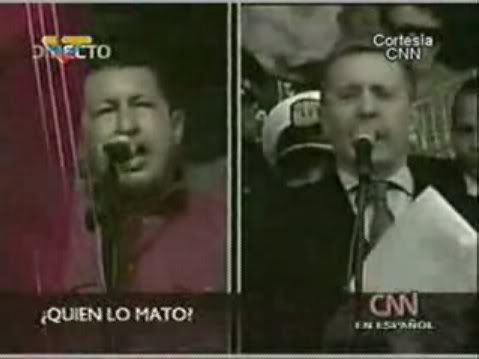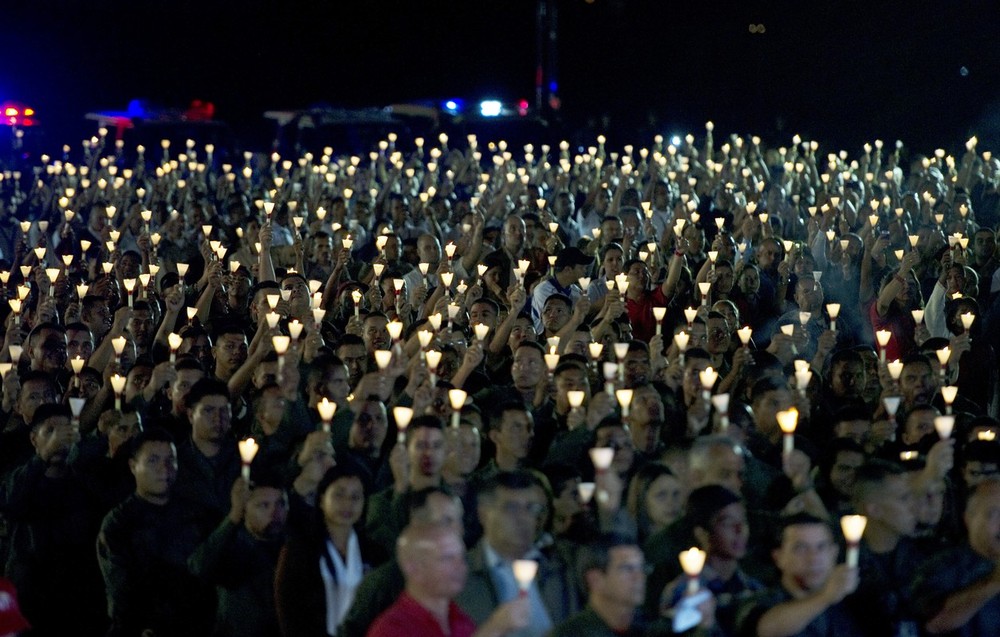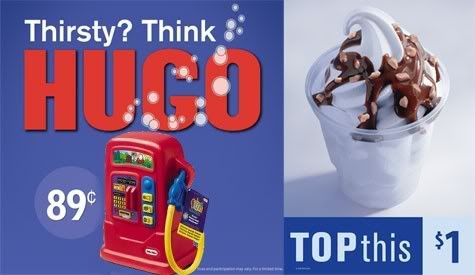This is true of anyone and everything. When it has to be underlined, one has to wonder why. Not that there sometimes aren't good reasons to find the middle way. But Chavez was attacked in an either/or way by the world's most powerful imperialist powers. When your tax money is paying for a covert war on a foreign nation - when it is paying for a war on democracy there - there can be no either/or. The question becomes, which side are you on?
Some of the criticisms of Chavez are self-evident; he could play the clown, and he did have an autocratic style, but the substance? In most countries, the 2002 coup plotters and their private media collaborators would have been lined up against the wall. If NBC had participated in a failed coup attempt against Bush, it wouldn't have lost its license after five years. Brian Williams would have been shipped to Guantanamo the next day.
As the OP said:
Since 2002, Washington channeled $100 million to opposition groups in Venezuela and this election year alone, distributed US$ 40-50 million there. [xi] But the Venezuelan people disregarded the barrage of propaganda unleashed against the president by the media that is 95% privately owned and anti-Chavez. [xii].
I believe that leaves little ground for nuance on the part of US-Americans. Attacking Venezuelan democracy is a budget item. Are they for it or against it?
Continuing article:
In the life of this passionate, flamboyant, provocative character, success and failure don’t meet in the middle but create a balance of extremes. He reduced poverty (the number living in extreme poverty went from 23.4% to 8.5%; unemployment halved) and poured oil money into education and healthcare but he left Caracas a failed city with crumbling infrastructure and one of the highest murder rates in the world. Working with other populist leaders on the continent, he made Latin America stronger and more self-confident but he was a loyal friend to tyrants and continued to offer unwavering support to Gaddafi and Assad even as they murdered protesters.
Venezuela indeed has near the highest murder rate in the world, and I believe it more than doubled since 1998. As for the support for Iran and Syria: not good, but who put Venezuela on the same kill list?
He introduced a progressive constitution and survived a US-endorsed right-wing coup without resorting to the extreme measures that blighted Latin America in the 70s and beyond,
To which leftist governments in Latin America never did. The 70s were the era of the Condor military dictatorships. Has Castro taken extreme measures? How do these look compared to death squads killing hundreds of thousands in Central America? Because that is what the US was looking to impose on Cuba.
but also centralised power, eroded human rights and intimidated opponents (although not on the scale that his critics would have us believe). And so on.
Venezuela has established grassroots, neighborhood-level democratic institutions unseen in the rest of the world.
Such titanic complexity is great if you want to write a Shakespearean tragedy but not so useful if you want to make a political case. For commentators (rather than reporters) on the left and right, there is a lot riding on Chávez’s legacy and nuance is the first casualty. You will read countless times that Chávez was a champion of the underdog and a vital counterbalance to the US-led neoliberal consensus. You will also read that he was an autocratic buffoon whose ambitions far outstripped his competence.
His critics have a hard time accepting that he genuinely won four elections, either questioning the integrity of the results or the intellect of the voters, unable to accept poor Venezuelans’ sincere love for a leader who actually cared about them. They also show considerably more concern for Chávez’s human rights abuses than they ever did for those of the regimes that did far worse things across Latin America, Venezuela included, with the west’s blessing during the Cold War.
Cold War?! What about right now: Colombia? Mexico? Honduras?! This cannot be ascribed to the author's ignorance.
If only Pinochet had attracted half the opprobrium, but of course he wasn’t a socialist.
Opprobrium? For a dozen years and more, Pinochet attracted Western money and Chicago boys' endorsements.
Overcorrecting this bias, supporters on the left are prone to handwave his human rights record, support for dictators and various economic failures. Give an inch in this argument and your opponents will take a mile.
Poor author, stuck between the extremes!
.






